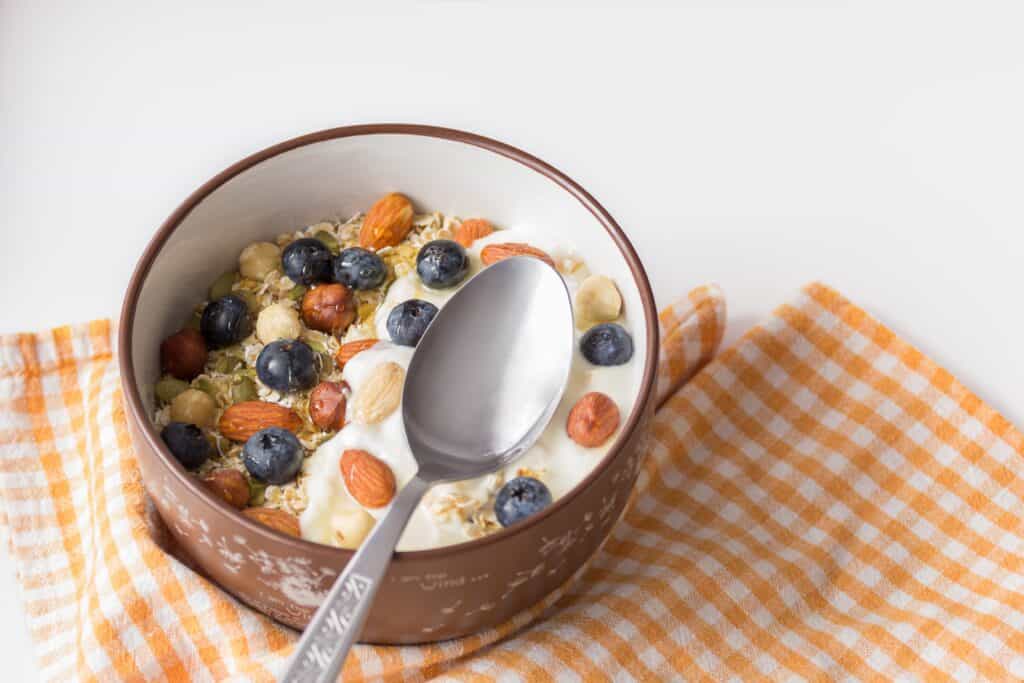Your gut plays a crucial role in overall well-being, influencing digestion, immunity, and even mental health. A balanced gut microbiome works to break down food, absorb nutrients, and protect against harmful pathogens. To maintain a healthy digestive system, it is essential to nourish your gut with the right foods. You can also consider supplementing a healthy diet with probiotics.
Fermented Foods
Fermented foods are rich in probiotics, which introduce beneficial bacteria to the gut. Yogurt with live cultures is one of the most well-known probiotic foods, offering strains like Lactobacillus and Bifidobacterium that aid digestion. Kefir, a fermented dairy drink, provides an even higher concentration of probiotics and can be a great alternative for those looking to diversify their sources. Other excellent fermented options include sauerkraut, kimchi, miso, and tempeh.
Fiber-Rich Foods
Dietary fiber serves as fuel for gut bacteria, helping them flourish. Whole grains like oats, quinoa, and brown rice contain insoluble and soluble fiber, which aid digestion and support regular bowel movements. Legumes such as lentils, chickpeas, and black beans are also excellent fiber sources that promote a diverse microbiome. Fruits and vegetables like apples, bananas, carrots, and broccoli contain prebiotic fiber, which feeds the good bacteria in your gut and helps them grow.
Polyphenol-Rich Foods
Polyphenols, natural plant compounds found in certain foods, have been shown to support gut health by reducing inflammation and encouraging the growth of beneficial bacteria. Green tea is a great source of polyphenols, as are berries like blueberries, raspberries, and strawberries. Dark chocolate, in moderation, also contains gut-friendly polyphenols that contribute to overall digestive balance.

Healthy Fats
The fats you consume can influence gut health by affecting inflammation and the integrity of the gut lining. Foods rich in omega-3 fatty acids, such as salmon, flaxseeds, and walnuts, help reduce gut inflammation and support beneficial bacteria. Extra virgin olive oil is another excellent choice, known for its anti-inflammatory properties and ability to promote microbiome diversity.
Hydration
Water is often overlooked when discussing gut health, but it plays a vital role in digestion and nutrient absorption. Staying well-hydrated ensures that fiber functions properly in the digestive tract, preventing constipation and promoting smooth digestion. Herbal teas, bone broth, and coconut water can also contribute to gut hydration while providing additional nutrients.
A Balanced Diet
Supporting gut health isn’t about eating just one or two specific foods—it’s about maintaining a well-rounded, diverse diet filled with fiber, probiotics, healthy fats, and antioxidants. Incorporating a variety of gut-friendly foods into your meals can lead to better digestion, improved immunity, and overall well-being. By making mindful choices and nourishing your microbiome, you can create a foundation for long-term digestive health.






This blog has so much learning. I am looking forward to more blogs from you.
I really like sauerkraut and try and have a little every day. I am one of those people who really needs to remind myself to drink more water though
I was talking to my daughter about gut health just the other day. This is perfect for me to pass to her. She will find the advice very useful. I managed to get her to eat yogurt so far.
This is such important information to know, since not many people realize that certain foods benefit you a lot more than you know. Yogurt is one of my favorite probiotics, it’s delicious and healthy!
I found this post very helpful as I do need to up my game with my gut health as I do suffer even more so at the moment with stress
I gave a try to the meal you have in the first picture, and it’s honestly SO good. This is great for chronic health and anxiety too! So filling, easy to make.
I’m going to give all of these a try. I can feel that my gut needs a little help.
Thanks for recommending good foods for maintaining gut health. Super helpful!
Thank you for sharing this list! I feel like I only knew that sour dough was good for gut health, but I hate bread.
Too good! it’s a reminder that a balanced approach is key to good gut health. I’m especially a fan of fermented foods like yogurt and kimchi.
I really needed this post. Although I’d consider myself a pretty healthy eater in general, lately I’ve been feeling like doing a cleanse/food reset-Thanks for sharing!! *Hydration is definitely underrated